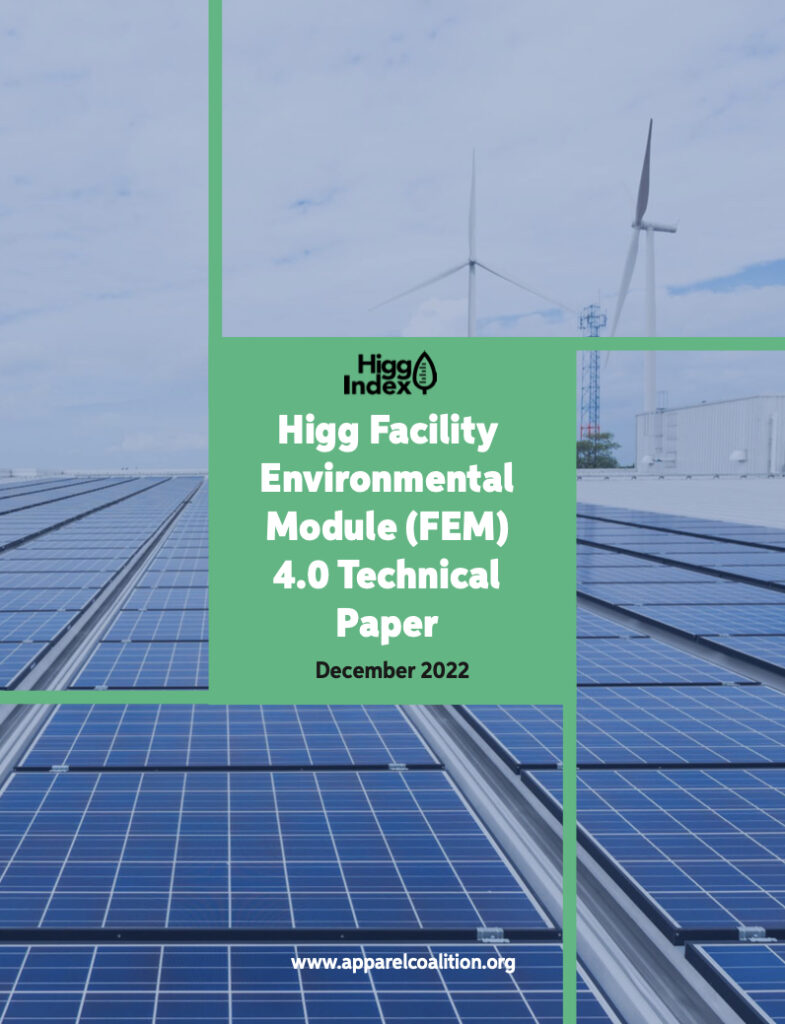
Dear Fashion: Let’s Step Up and Get Aligned
In a recent opinion editorial with WWD, CEO Colin Browne argues fashion needs to take more serious and coordinated action on sustainability. Read the highlights here!

San Francisco, Amsterdam, Hong Kong – January 22, 2024: The Sustainable Apparel Coalition announced a significant milestone today, welcoming its first member in Korea, Hansoll Textile Ltd. New members, like Hansoll, reflect ongoing efforts to elevate APAC manufacturing voices, which are critical to the SAC’s mission of industry transformation.
“We are thrilled to celebrate the milestone of expanding our reach to Korea with new member Hansoll,” said Andrew Martin, executive vice president of the SAC. “As we demonstrate our commitment to engage more manufacturers in the APAC region, we are honored and humbled by new members that demonstrate their leadership by joining us in industry transformation across the consumer goods industry.”
Founded in 1992, Hansoll Textile Ltd. is a leading global textile company, specializing in the manufacturing and export of knit apparel to the United States, Europe, and Japan. Over the past 30 years, they have achieved a remarkable 200-fold increase in revenue and continue improving their marketing and design capability and investing in owned manufacturing and the world’s best smart factory. As a forward-thinking organization, Hansoll Textile actively responds to evolving market demands by spearheading the transformation of the global digital value chain through a digital platform. Committed to sustainability, they practice green management to contribute to a sustainable future and actively embrace ESG-focused work processes to meet corporate social responsibility.
“As one of the biggest manufacturers in the world, Hansoll Textile is committed to active engagement in ESG-focused management. Joining the SAC provides a pivotal opportunity to align with global sustainability standards,” said Diana Oh, Senior Manager, CSR/Sustainability at Hansoll Textile, a new SAC manufacturer member. “Our SAC membership will significantly benefit Hansoll Textile by enhancing our sustainability practices and integrating us more deeply into the global sustainability textile community. Leveraging SAC’s resources, we aspire to enhance our corporate social responsibility initiatives, broaden our expertise, and set new benchmarks in sustainable manufacturing within the global textile industry. Our SAC membership symbolizes our dedication to shaping a more sustainable and responsible future for the textile industry.”
Now reflecting over 300 members around the world, the SAC doubled the number of manufacturing members in 2023, as compared to the previous year. And, in response to calls from members, the organization began expanding its membership to the adjacent product categories of home furnishings, sporting and outdoor goods, and bags and luggage.
— ENDS —
About the Sustainable Apparel Coalition
The Sustainable Apparel Coalition (SAC) is a global, non-profit alliance of over 300 organizations in global apparel and consumer goods. Initially formed to create standardized sustainability metrics, the SAC has sharpened its focus to driving pre-competitive, collective action across three foundational pillars. As an independent entity, the SAC brings together brands, retailers, manufacturers, NGOs, academics, and industry associations to combat climate change, ensure decent work, and contribute to a nature-positive future. Central to the SAC’s mission is the Higg Index, a suite of comprehensive tools that empower members to measure, evaluate, and improve sustainability performance across the supply chain. To support evolving industry needs, the SAC also brings together a focus in policy, transparency, and programs for collective action.
On March 6, 2024 we hosted over 200 attendees at the Manufacturer Forum: Dhaka under the theme “Catalyst for Change.”
Event Gallery
We hosted our Manufacturer Forum: Bangalore in India, on December 4, 2023, under the theme “Catalyst for Change”
Welcome to Cascale’s Manufacturer Forums! Our Manufacturer Forums are designed to empower business leaders like you to become Catalysts for Change. By participating, you’ll strengthen relationships with customers and value chain partners while championing positive change.
Learn More about our Manufacturer Forums
Welcome to Cascale’s Manufacturer Forums! Our Manufacturer Forums are designed to empower business leaders like you to become Catalysts for Change. By participating, you’ll strengthen relationships with customers and value chain partners while championing positive change.


The textile and apparel industry has a unique role to play in empowering women and increasing equity for millions of women garment workers, especially in the Global South, who depend on it for survival. The theme of this year’s International Women’s Day is ‘embrace equity’ – we must make equity central to our collective journey to becoming more responsible and ensuring a just transition to a fairer and greener system for all.
As with many female leaders across the world, striving for greater equity is a personal passion of mine, and something I reflect on and work towards all year round. Empowering women has huge benefits to industries, and the planet, worldwide.
As we collectively accelerate our work on addressing the climate crisis, those who are the most vulnerable within our sector – the millions of women who work in textile and garment production facilities – must be at the heart of our strategies. Sustainability is about addressing environmental and social equity hand in hand.
The apparel industry is one of the few in which women workers predominate with women making up 80% of the world’s garment workers. Our sector consequently has an enormous opportunity when it comes to increasing equity. Already, it offers a foothold for many women out of poverty.
When speaking to our members and the women working in facilities, I have heard inspiring stories of how working in the industry has not only changed lives, but the lives of the next generation. Women have spoken of increasing independence, security and professional growth. Some are the first in their families to send their children to school, which is especially important for girls and it has enabled them to achieve a more prosperous future. The positive impacts are multi-faceted and multi-generational. By taking a lead on this issue, our industry can take a lead on the greater societal change necessary for a prosperous, inclusive and more equitable future for all.
However, women garment and textile workers are also disproportionately affected by exploitation. Some face gender-based violence and even slavery. We need to do more together, to co-create solutions across the entire value chain to address these issues and realize opportunities for all women. We need to see fair pay, decent conditions, job security, and opportunities for development.
One example of this type of collaboration is RISE, formerly known as Empower@Work, a collaborative initiative from BSR’s HERproject, CARE, Better Work, and GAP Inc.’s P.A.C.E program that seeks to deliver a unified approach to women’s empowerment and gender equality in global supply chains. By helping to support, empower and increase equity for women, the entire industry benefits.
No easy answers exist, but our industry is known for its creativity, ingenuity, and our ability to collaborate on shared solutions. We have the talent, imagination, and skills to envision and realize expansive solutions to the complex series of interlinked problems we face. The key is staying focused on putting people first, particularly women, to ensure greater equality, empowerment, and equity across the value chain.
As a women-dominated industry, apparel has a unique opportunity to do something exceptional and lead on issues of gender equity; this needs to happen from the top down. Although Fortune 500 recently recorded its highest number of companies led by women (10%), fashion industry leaders are still male dominated. Approximately 75% of men take up CEO roles, compared to the 80% of garment workers being made up by women. This disparity between the number of men in leadership positions and women making up the majority in the manual labor work force highlights how important it is to “embrace equity” in the apparel industry and ensure women are empowered throughout the whole supply chain right into leadership roles. If we are serious about gender equity in this industry, our organizations need to reflect this commitment at all organizations across the value chain, from the boardroom to the factory floor.
We need to embrace equity and create the best possible version of our industry – one that empowers women at all levels and creates a more equitable future for all.
The purpose of this Technical Paper is for Higg FEM users to start understanding and preparing for the next version of the Higg FEM (“Higg FEM 4.0”), which will officially be released on the Higg platform in November 2023. Facilities will start reporting their 2023 performance using the FEM 4.0 framework.
